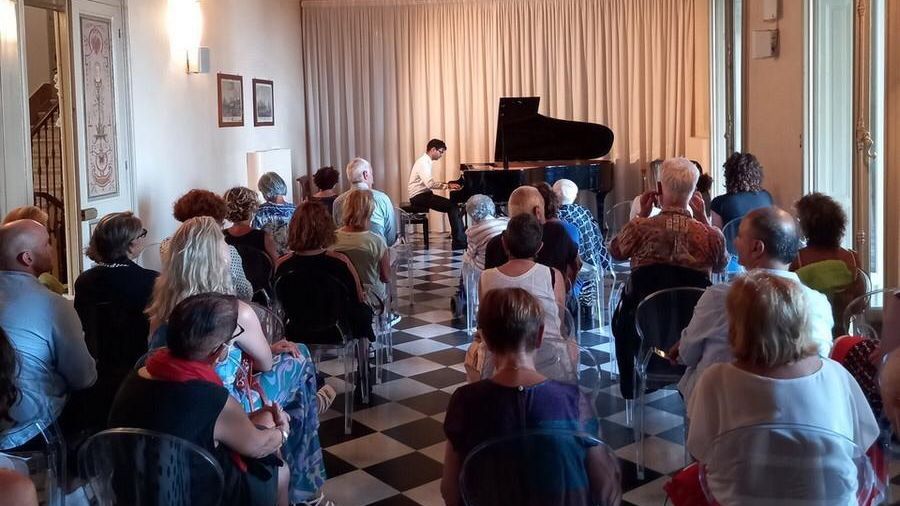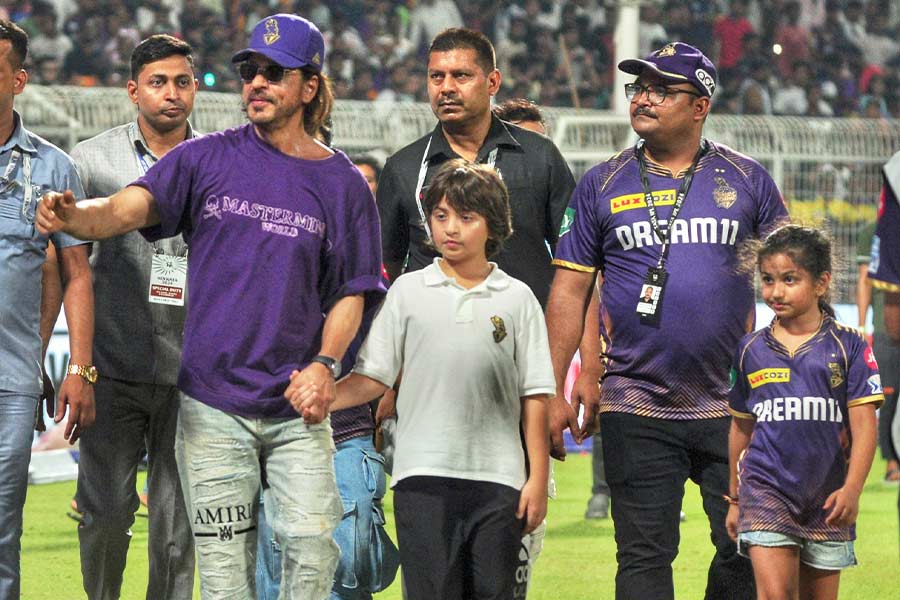To hear Kanishka Saha on music is to glimpse something overwhelming, even other-worldly. But it is not easy to hear him.
Worldly things, such as distance and time-zones, come in the way. The 23-year-old lives in Milan. We eventually talk after overcoming a challenging combination of online meetings, video calls, audio calls and messages.
Kanishka, a pianist, has been studying western classical music in Italy for six years. He had previously studied at Conservatorio ‘A. Vivaldi’ Alessandria, near Milan, from where he obtained the equivalent of a graduate degree. Now, he is a student of Conservatorio ‘G. Verdi’ Milano (Milan), where he is pursuing a postgraduate diploma.

Kanishka Saha
When he was in Kolkata, where his parents live, “locked” for 11 months because of the pandemic, he gave a recital that left some dazzled. He had first arrived in Italy from Kolkata in 2017, when he was 17, enrolling at the Alessandria Conservatory at the suggestion of pianist Fabio Marra, who was professor of harmony and analysis at the conservatory. Kanishka was a student of Academy for Musical Excellence and Communication (AMEC) in Kolkata then.
How was it to arrive in a foreign country so young, without a knowledge of its language, in pursuit of something that obviously inspired him, but was also daunting in the rigour, discipline and commitment that it demanded?
You realise you have to prise out personal information from Kanishka, who, though unfailingly courteous, pleasant and articulate, tends to not talk about himself.
“It was shocking to see how seriously they treat music,” says Kanishka, about his first days in Italy. He is trained as a pianist, but he is required to study music academically, in depth, in its historical, social and cultural contexts. “This is more of a cultural study,” he says. It is demanding, of course, “but was not immediately difficult”, because of the care with which he is taught. “It is meant to shape your thought,” he adds.
It shows him how “all-encompassing music might be”. “It doesn’t end with the fingers,” says Kanishka. Music is not just about physical gifts. Success or failure can be irrelevant, as music is a never-ending process.
He mentions his piano teacher in Italy, professor Silvia Leggio, and his teachers in Kolkata, Surendranath Majumdar and Kaushik Das, for their tireless support. Kanishka’s father was his first inspiration.
“The courses were structured around my limitations,” he says. They also addressed the cultural distance between him and his subject. Music is a web of “cultural undertones”, which are difficult to understand for someone from a different culture. Even as Kanishka was made to study western music, he was encouraged towards finding, in relation to it, reference points from the part of the world he comes from.
This has led him to exciting adventures, such as discovering the Russian composer Aleksandr Scriabin based his theory of music substantially on the Theosophical doctrine.
“Lately, I am trying to broaden my Beethoven repertoire. Currently, I am working on his last sonata, op 111, the 2nd movement of which is constructed with principles that are fundamental to Indian classical music,” he says.
“The second movement uses the technique of ‘diminution’, the shortening of notes progressively to reach a crescendo/a ‘natural’ build-up’ — a technique that is intrinsic to Indian classical music. This crescendo builds up until the middle of the movement to dissipate gradually by the end. And surprisingly the 1st movement begins with arpeggios that allude to Dante’s Inferno. So it’s quite a tour round the world, thanks to Beethoven’s genius,” he explains.
The Indian sound in Western classical did not start or end with Beethoven, he says. “For example, Debussy in alluding to an oriental soundscape in his works recast the very concept of harmony on which Western music is built.”
The pandemic was a great teacher because when it was over, in Sicily, Kanishka attended a live music event that “unleashed” something inside him. He felt how much could be extracted from an instrument and how much live music is removed from online platforms.
“As a performer, I think my responsibility is to reproduce the ‘sonic image’ the piece of music was conceived with,” says Kanishka.
“When playing masterpieces composed at least a century or two ago, the academic training provides tools to somehow engage with these figures on a rather ‘personal’ level.”
A fine performance stirs the soul. “Our response to visual stimulus is quite immediate and direct. But a fine performance stirs up responses we might have been unaware of. As if we were being channelled to an intangible higher energy, though momentarily.”
Which is why perhaps there is something in the perception of classical music as a difficult, even punishing, taskmaster, an idea often reinforced by popular media and films such as The Piano Teacher or Black Swan, when the musician/dancer can only redeem herself with the ultimate, death.
Kanishka laughs and says that to an extent it is understandable: musicians can be authoritarian, difficult, or bitter, because they can realise how little our lives matter. “Music is a quasi-divine language. Musicians are like priests, custodians of something privileged. Their behaviour may not belong to the ‘normal’ spectrum. They may be unable to communicate with other people. Music communicates with the deeper selves within us and others.”
Yet it is not just musicians. Nothing can be more universal than music, either. “Every individual possesses such receptive faculties innately. The idea of precision, balance, beauty…,” he says.
One of his earliest favourites was Mozart’s piano concerto no. 9. “It left a very lasting impression. My first classical music disc, performed by Mikhail Pletnev!” says Kanishka.
“In my early years I was very much drawn to Chopin. I still am! His Waltz op 18 performed by a polish trio at ICCR! And the famous etude op 10 no 12 performed by Pervez Mody at the bicentenary celebration of Chopin’s birth!” Kanishka grew up in Kolkata and Nagpur.
He has learnt Italian, which is the language of music. “It always surprises me how nuanced discussions can become if a language ‘endures’. And with Italian it’s quite limitless.”
He is yet to cultivate a good reading habit, he says. “I would love to read Harold Bloom’s The Anxiety of Influence, Henri Lefebvre’s The Production of Space, Goethe’s Faust and Dante’s DivineComedy.”
Not that he does not have time for less-than-high art. “I am very fond of series like Skins and The Inbetweeners. And I can’t get enough of Bollywood comedies!”
When he first came to Italy he lived in shared accommodation. Now he has his own rented space. He does part-time work, such as translation of documents from Italian to Bangla and digital notations. During his bachelor’s degree courses, his tuition fees were waived for two academic sessions.
He loves Milan.
“It is one of the most culturally active cities in Europe. I dare to compare it to Beethoven’s symphonies: very well-planned and connected. The idea of constructing a piece of music using small constituents efficiently is fundamental to Beethoven!” he laughs.
“Milan’s very cosmopolitan. I haven’t explored it enough. But Milan Conservatory is very close to the iconic Cathedral. I like to spend the breaks between lessons at the Square in-front. I have been to venues like Teatro alla Scala and Sala Verdi, where every musician of renown performs at least once a year.”
But the city also gives him solitude, essential to the life of music.






